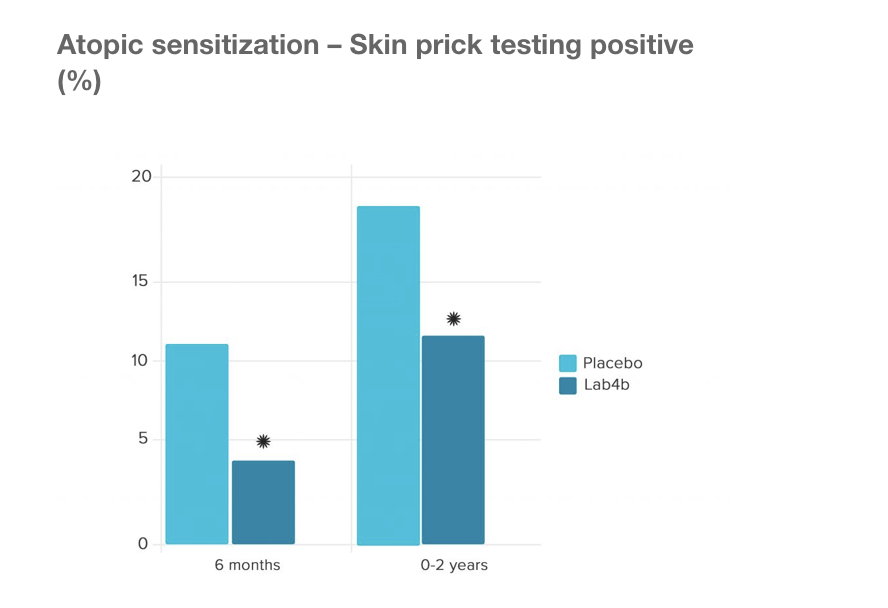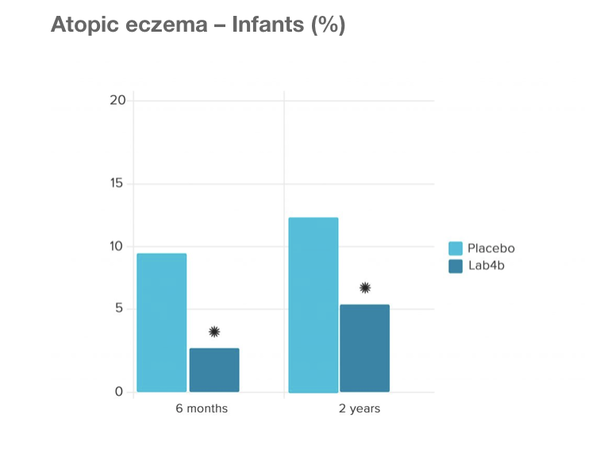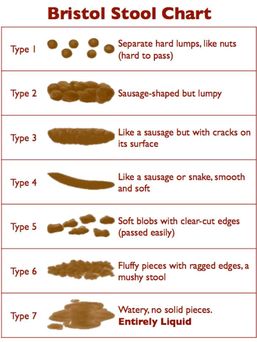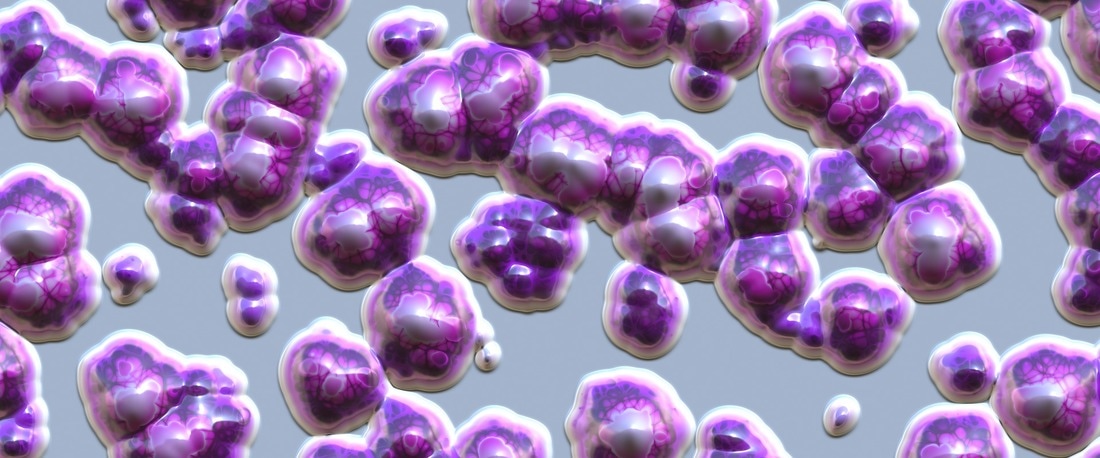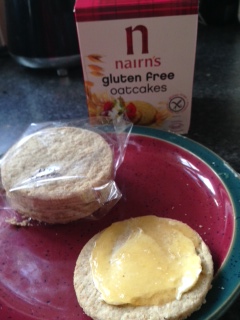|
Have you been told that your baby has reflux? Are you trying to get your head around what that means and what to do next? I'm here to help.
2 Comments
Eczema or atopic dermatitis is a chronic skin condition often causing red itchy inflamed skin which can range in severity from mild to severe. According to statistics around 15 million people in the UK live with this condition and in 2015 GP’s in England wrote around 27 million prescriptions for various topical agents costing around £169 million. If you are thinking to yourself that more and more people are suffering from this you’d be right in your assumption. An NHS funded study has shown that the numbers of cases have risen by 40 % in 4 years. What we do know about the condition is that it is an allergic condition with 80% of sufferers having raised IgE antibodies. Eczema patients have positive allergy tests and around two thirds have a family history. Many also suffer from other atopic conditions such as asthma and hay fever. The standard treatment protocols involve simply managing symptoms via emollients and sometimes steroids and if infection is triggered due to scratching, antibiotics. Allergens are also tested for although these tend to focus on only IgE mediated reactions. Other considerations…. Immune function We are back to finding our root cause. So first lets look at what’s going on in the immune system. The allergy antibody IgE is elevated in 80% of cases and this is activated by a type of white blood cell, a helper cell called TH2. Mast cells can release higher amounts of histamine leading to the itch that we associate with eczema. Then there’s the issue that around 90% of sufferers also have a predominance of the bacteria Staphylococcus aureus on the skin which their immune system is unable to kill. Often scratching can activate this infection and cause some potentially severe staph infections. So how do we prevent this vicious circle? Well we have to do everything we can from day one to promote our gut/immune function. In our immune system we have regularly T cells sometimes known as Treg, which are involved in immune suppression and immune tolerance. It’s known that an unhealthy gut can lead to a decrease in these important cells and therefore an imbalance in our TH1/TH2 cells with the TH2 cells being unregulated. Studies have indicated that the use of probiotics from birth can confer a reduction in TH2 dominance and symptoms of AD at 13 months old versus placebo. Breast feeding Studies have shown that breast feeding is associated with a reduced risk of eczema and other allergies. However there is a caveat here in that although breast milk may confer antibody protection, in at risk children it may also be necessary for the feeding mum herself to remove common allergens which may unwittingly be triggering the problem as these proteins pass through the milk. Common allergens being dairy, peanuts and eggs. That said, the advice is to introduce these common allergens while breast feeding at the 6 to 12 month stage and to then continue to breast feed for a further 6 months following this introduction. Older and formula fed children In older and formula fed children a study looking at triggers for eczema indicated that Peanuts eggs and milk have been shown to account for 80% of adverse reactions to foods in people living wth contact dermatitis. Other common triggers and are wheat, fish and soy. The hygiene hypothesis. Are we just too clean? Epidemiological studies, especially those looking at migration from one country to another indicate that we acquire the same immune disorders as soon as we move to another area so environmental factors are playing a huge role. Lifestyle changes have led to a decrease in infection in the industrialised world and this has been shown to be inversely correlated with increases in allergies and autoimmunity. Studies have also shown that exposure to animals or growing up on a farm confers protection from a young age as we are exposed to a greater variety of bacteria which leads to activation and modulation of innate and adaptive immune response. In one large Swiss study, nearly 14,000 children were surveyed between 2006 and 2007, with over 3,000 farming children and around 11,000 non-farming children. In this study, 38% of the non-farming children had allergies compared to 19% of the farming children. Digestive compromise Those living with allergies have commonly got some level of digestive compromise and dysfunction. Stomach acid which normally assists in the removal of infection and therefore has a protective role, can commonly become low and therefore play a role in weakening our immune system and make us more prone to infection. It also sets us up potentially for the leaky gut phenomenon which puts us at risk of further food sensitivities of the IgG variety (delayed reaction) and chronic inflammation. If you have intestinal permeability you may also be experiencing other health challenges e.g. fatigue, brain fog, headaches, depression, sinus, IBS, reflux, joint pain, and autoimmunity. This is also why I see many clients in clinic who may be coming along for help getting to the root of their eczema but who also have any number of the aforementioned symptoms. A lack of a very important nutrient zinc can ensue as a consequence of low stomach acid. This nutrient is essential for immune, gut, hormone and skin health. It affects appetite, smell and taste of food, so in children who have a narrowing of food choices and are no longer enjoying certain foods, zinc deficiency may be at the heart of this. It is also a particular problem in cases of acne in teenagers so look out for changes in eating and appetite in older children and test their zinc levels. This can be done with a very simple taste test which all the family can do. Adequate zinc is also required for healing the gut. Gut Flora and probiotics Because our immune system resides primarily in the gut we need to look at gut bacteria. We also need to weed out any trouble makers Interestingly yeast overgrowth is a common cause of eczema. It’s also a very common problem as the western diet of high sugar, refined carbs and low fibre sets up the perfect conditions for this to grow. In addition, yeast overgrowth can result from long term medication use e.g. antibiotics, steroids and the oral contraceptive pill. We therefore need to ‘weed and seed’ the gut, get the infections out and the good bacteria in to assist with immune balancing and symptom resolution. Risk factors for allergies in children This relates to those factors which influence the health of the micro biome from day one. In an ideal world we need to be focusing on the gut health of mum prior to a planned pregnancy as this is what baby inherits. Areas of concern are
The Swansea Study This was a large study by the University of Swansea Medical School with 454 mother/baby pairs who were given Lab4b probiotics containing Lactobacilli and Bifidobacteria both during the final month of pregnancy and the first 6 months of infancy to evaluate whether this would prevent allergy in children. The results showed that versus placebo, the probiotic groups did indeed confer a protective effect on prevention of eczema and also prevention of allergic reaction to common allergens including pollen, cows milk, eggs and dust mites. Prof. Steve Allen, concluded the following key message from the trial:‘Lactobacilli and Bifidobacteria administered to pregnant women and infants aged 0-6 months prevented atopic sensitization and atopic eczema. The babies given the Lab4b probiotics were 57% less likely to develop atopic eczema than those receiving the placebo. The babies given Lab4b were 44% less likely to develop allergic reaction to common allergens, including pollen, cow’s milk, egg and house dust mite. Stress
Stress is very much linked with gut/immune function and when we are stressed we are more likely to have a flare of these conditions so managing stress for young and old is a life long strategy for eczema management. Adaptogen herbs can be helpful as can mindfulness, meditation and essential oils such as lavender for relaxation. As those living with eczema have a tendency towards poor absorption due to gut compromise a common nutrient which we can find ourselves low in is magnesium and this is also because we actually use more of it when we are stressed. More tips here on how to maintain levels. Nutritional therapy/ Functional medicine approach for eczema The nutritional therapy approach involved recognition of all of the above factors and follows through with the following stages.
Further testing This can be done if required and in addition to either allergy or food intolerance testing we can offer stool testing to identify infection and imbalance and even cortisol testing if stress is a particular trigger. Supplements This really does depend on the individual. It depends on what else they may be presenting with, their individual root cause/s, what medications they are on etc. However core supplements to include are going to be probiotics to reinoculate the gut, omega 3 and vitamin D. We may also recommend supplements and diet change to support gut integrity and immune balancing as per above recommendations. More info on booking an appointment with us for adults and children here. Referenced Studies Burks AW, Williams LW, Mallory SB, et al. Peanut protein as a major cause of adverse food reaction in patients with atopic dermatitis. Allergy Proceedings 1989;10:265-269. Von Mutius E, Vercelli D. Farm living: effects on childhood asthma and allergy. Nat Rev Immunol. 2010;10:861–868. Allen SJ et al 2014. Probiotics in the prevention of eczema: a randomised controlled trial. Archives of Disease in Childhood 99(11): 1014–1019 What is Endometriosis? Endometriosis is a common women’s health condition affecting 1 in 10 women in which cells from the endometrium (lining of the uterus) appear and flourish outside the uterine cavity, usually on the ovaries. Symptoms can worsen at certain points during the menstrual cycle as cells are influenced by female hormones. Symptoms can include pelvic pain, painful periods, painful intercourse and infertility. It can also impact urinary issues and pain on urination and has been linked to interstitial cystitis. Usually endometriosis is diagnosed after a laparoscopy of the pelvic cavity although pelvic ultrasounds are also used to detect endometrial tissue outside the uterus. The shedding of endometrial tissue long term can lead to scarring and chronic inflammation which has led many experts to suggest a strong autoimmune component to the condition. In clinical practice it is something we often see coexisting with other autoimmune conditions. Risk factors for endometriosis include: family history, a diet high in trans-fats, use of intrauterine devices, and unbalanced oestrogen levels. Conventional Treatments Symptoms are often managed with hormonal medication to suppress the natural menstrual cycle, plus painkillers to manage the associated discomfort. Occasionally progesterone creams may be prescribed. The most aggressive treatment is surgery, with some women opting for a hysterectomy. The long term use of non steroidal anti-inflammatory medication for pain can contribute to the problem as it sets us up for intestinal hyper permeability (leaky gut) which adds to the picture of inflammation, so safer and effective means of reducing inflammation are needed. Although laparoscopic removal of endometrial tissue can benefit sufferers for up to 2 years, symptoms generally return and the procedure itself can cause lead to further scar tissue. In an ideal world sufferers would be referred to Nutritional Therapists or Functional Medicine practitioners to explore root cause/s and to address all angles. Natural Alternatives The naturopathic approach to endometriosis is focussed on:
Reducing Inflammation Inflammation is a huge driver for endometriosis. The Nurses Health Study II found that women who consumed the most trans-fats (hydrogenated vegetable oils often used in processed foods) were 48% more likely to be diagnosed with endometriosis. Women with the highest consumption of omega-3 fatty acids were 22% less likely to be diagnosed with endometriosis. Reducing the amount of omega-6 fatty acids at the same time as increasing omega-3s also helps reduce inflammation. Ideally we would have an omega-6:omega-3 ratio of 3:1 however the western diet is closer to 16:1! Foods that are high in omega-6 and should be avoided include sunflower, corn, soybean and cottonseed oils. In addition to this opt for grass-fed meat as livestock fed a grain-based diet high in corn and soya produce meat high in omega-6. Foods that are high in omega-3 include: Oily fish like salmon and mackerel; flax and chia seeds; organic free-range eggs; extra virgin olive oil; and walnuts. Some people may also benefit from supplementing with an omega-3 oil in the short term while they make dietary changes. Antioxidants are very relevant to prevention and reversal of tissue damage in endometriosis, so it's important to increase our antioxidants in the diet via increasing vegetables and fruits (ideally organic). Vitamin C, A and E are beneficial and also resveratrol from red grapes, N-Acetyl cysteine, pine bark, green tea and melatonin have been studied for their powerful antioxidant benefits with some interesting results. NAC (N-acetyl cysteine ) A 2013 study of 92 women with endometriosis showed that following 3 months of supplementing with NAC for 3 days a week each week led to cancellations of laparoscopic visits due to a reduction in symptoms. A new 2023 study has also showed the benefits of NAC. Conclusions are that NAC showed a statistically significant reduction in endometriosis pain, a statistically significant reduction in endometrioma size and 75% of patients who wanted to had a spontaneous pregnancy within 6 months! I have been using NAC for a long time in clinical practice and can attest to the benefits most strongly. It also has benefits for miscarriage prevention among many others. Pycnogenol from pine bark A swiss study which gave women either Pycnogenol or GnRH (Gonadatropin releasing hormone) for 48 weeks showed a reduction in symptoms in both groups. Interestingly, after treatment stopped the benefits in the pycnogenol group lasted while the GnRH group relapsed after treatment. Melatonin A very interesting 2013 randomised, double blind placebo controlled study looked at the analgesic, antioxidant and anti-inflammatory effects of melatonin in endometriosis with some very promising results. Apart from improving sleep, melatonin was shown to reduce the risk of using analgesics by 80%. Melatonin if supplemented needs to be started slow and gradually increased up to the 10mg dose used in this study. You can also support your own natural melatonin production by avoiding the blue light effect at night from computers and TV's, wearing amber glasses and sleeping in total darkness. Certain foods such as cherry, banana, oranges, kiwi and pineapple support melatonin production as does supplementing magnesium. Enhancing Detoxification Yes, we are talking about poo here! Actually detoxification involves the gut and the liver but it’s vitally important to make sure that we move our bowels at least once every day if we want to facilitate optimal detoxification. We also want to make sure that we are having a normal bowel movement. On the Bristol stool chart below we should be aiming for a 3-4. If you are having anything other than that pop in and have a chat because there are lots of things you can do to support healthy bowel function. Constipation is a common problem in hormonal imbalance across the board and we need to get to the root cause to eliminate this risk factor properly. Increasing the amount of vegetable-based fibre in the diet is vital if we want to support our gut bacteria as this is what the good bacteria feed on. Increasing our intake of vegetable fibre has been shown to help clear excess oestrogen from the bloodstream. Cruciferous vegetables are particularly good at this so increase your intake of: broccoli, brussels sprouts, cabbage, kale and cauliflower. Supplementing with the right B vitamins can support detoxification of hormones promoting balance. Endometriosis often involves higher oestrogen over progesterone (which tends to be low), another commonly used herbal supplement which is used to rebalance the hormones is Agnus castus. There are further supplements which support this but these are advised on a case by case basis and depend on identifying individual challenges and possibly further testing. For some sufferers there may be an underlying SIBO (small intestine bacterial overgrowth) which needs to be dealt with. Balancing hormones This involves diet as well as removal or avoidance of a class of chemicals known as endocrine disrupters. That's because these chemicals found in our cleaning fluids, toiletries and cosmetics and plastic bottles actually exert a xeno-oestrogen or oestrogen mimicking effect. The trouble is our bodies don't know the difference between a real oestrogen and a pretend one so exposure to these chemicals needs to be avoided if we want to balance hormones. The increased exposure to these endocrine disrupters in modern living explains in part the increased challenges with many hormonally driven conditions. So time to take a look at your bottles hiding under the sink and examine your toiletries. There are many alternatives available which avoid all the nasties such as parabens and phthalates etc. Using essential oils are a safer way to clean your home and good old fashioned vinegar and bicarb will save you money and unnecessary toxin exposure. Managing stress Hormones don't work in isolation. The endocrine system works as a team and managing our stress hormones is key to supporting any hormone challenges. It's also why a comprehensive assessment of stress hormones is included in my preferred hormone screening. When stress is chronic and cortisol is elevated, progesterone can drop leading to unpleasant symptoms such as moodiness, increased weight around the middle, sleep problems and breast tenderness. Supplementing with magnesium and adaptogen herbs can support this as can meditation, yoga and mindfulness. Reducing Symptoms Studies have shown a significant reduction in symptoms in women who move away from eating higher-glycaemic carbohydrates (bread, pasta, rice, cakes, etc.), reduce caffeine and increase their intake of Omega-3 fatty acids. Caffeine can have be a problem for many women with endometriosis with one study showing consuming 150-225mg of caffeine per day (about 1-1.5 cups of coffee) increased the risk of endometriosis by 20% and those who drank more than 225mg of caffeine had a 60% increase. Supporting blood sugar balancing is fundamental for hormone balancing as these two are related. Turmeric has been shown to reduce inflammation, support blood sugar (important when you’re trying to reduce food cravings), reduce pain and support liver detoxification making it a key supplement in the support of endometriosis. Magnesium, Ginger root and Devil's claw are also favourites as anti-inflammatories in place of NSAID's. Magnesium can be taken throughout the month with an increased dose the week prior to a period. Magnesium is commonly deficient in endometriosis and you may be experiencing symptoms of deficiency such as twitchy eyes, restless legs, anxiety, palpitations, headaches, sleep problems. These are things I see commonly in clinical practice. It's important to find the right kind of magnesium and also the right dose for you so do get in touch to find out more. A simple way of using it in addition to oral supplementation is to use a spray on the abdomen daily and increase the week before a period. In addition to its anti-inflammatory benefits, magnesium is also essential for energy, mood, sleep and blood sugar regulation. We also recommended epsom salt baths due to very good transdermal absorption. Food intolerance also play a part here in that if we continue to eat foods which we are intolerant to we add to the picture of inflammation. One of the biggest drivers in endometriosis is gluten and studies have shown a significant reduction in symptoms following a gluten free diet. However, when IgG food intolerance testing is done, we can see a further reduction in symptoms. Other food triggers can be dairy, soya, yeast, eggs, corn, peanuts, cane sugar and also foods in the nightshade family eg tomatoes, potatoes etc. Endometriosis has a strong link with IBS so following the anti-inflammatory protocol above and an elimination has been found to be supportive of both conditions. Genetics: nutrigenomics is the study of how nutrition influences every aspect of our gene expression. When we do genomic testing we learn how our individual genetics play a role in every aspect of our physiology from detoxification to how we metabolise hormones and nutrients (among many others) and this is becoming such a pivotal starting point for many as it gives use those immediate signposts at an individual level as to why a person may need more specific support with certain supplements or why they may not tolerate others. It can also guide us to the right type and combination of supplements when we know the individual needs based on genetics. We also learn how our nutrition influences our gene expression either positively or negatively so we can make the most optimal choice for us. If you're one of those people who feels they have tried everything and is still not getting the answers and symptoms resolution, looking at genetics could definitely be the way forward. You could always book a discovery call if you would like to understand more. Massage therapy can also help reduce symptoms. An Iranian study showed that massage of the back, sacrum and abdomen lead to a significant reduction in painful dysmenorrhea caused by endometriosis. Abdominal massage can also stimulate peristalsis in the large intestine therefore support detoxification. In addition to this abdominal massage can also help to breakdown scar tissue and adhesions. In all cases risk factors and drivers are always individual and an appointment with a Nutritional Therapist can help you uncover the triggers and drivers of your own condition and support you with an individualised protocol. We also have access to a range of tests including comprehensive hormone screening such as the DUTCH Test which covers reproductive hormones, stress hormones, melatonin levels, neurotransmitters and B vitamin metabolites. We can also assist you with long term plans such as fertility and other co-existing health challenges. Always ask us first before choosing supplements as there may be drug nutrient interactions to consider or speak to your healthcare provider. Some off the shelf supplements may also contain food allergens and other additives. To book an appointment or for enquiries contact us here References: https://academic.oup.com/aje/article/137/12/1353/155016 http://cancerres.aacrjournals.org/content/41/9_Part_2/3771.short http://www.fertstert.org/article/S0015-0282(01)01991-4/abstract https://academic.oup.com/humrep/article/25/6/1528/2915756 http://europepmc.org/abstract/med/23334113 https://www.sciencedirect.com/science/article/pii/S0753332217346838 https://www.ncbi.nlm.nih.gov/pmc/articles/PMC3093183/ https://www.ncbi.nlm.nih.gov/pubmed/17879831 https://www.ncbi.nlm.nih.gov/pubmed/23737821 https://www.ncbi.nlm.nih.gov/pubmed/23602498 https://pubmed.ncbi.nlm.nih.gov/18983759/ https://www.ncbi.nlm.nih.gov/pmc/articles/PMC10048621/ Did you know that magnesium is an essential mineral for cellular health and over 300 biochemical functions in the body? As a result, deficiencies of this vital nutrient can create all kinds of health problems. Health complaints which magnesium deficiencies are commonly associated with include hormonal imbalance, behavioural disorders, mood swings, insomnia, fibromyalgia, chronic fatigue, migraine headaches, and type 2 diabetes. It is now estimated that a staggering 80% of people are deficient in this vital nutrient. What has led to widespread magnesium deficiency? The main causes of magnesium deficiency are gastrointestinal and renal losses. However, you can also lose magnesium through excessive sweating, every day movement and stress. Even if you regularly consume vast quantities of magnesium rich foods such as spinach and swiss chard, you still may not be receiving the levels of magnesium required for optimal health. This is because soil depletion has lowered the amounts of magnesium present in crops and magnesium has been stripped from processed foods. In addition, the increasing consumption of antibiotics both for medical usage and in the food chain has stripped our guts of the good bacteria necessary for proper digestion and absorption of vitamins and minerals. As the number of people with digestive disorders such as leaky gut has risen, as well as autoimmune conditions such as coeliac disease which inhibits the absorption of nutrients, this also makes it harder for people to absorb vitamins and nutrients such as magnesium. It may therefore be easier for people with these kinds of digestive complaints to absorb vitamins and minerals transdermally through the skin rather than the gut. BetterYou have created a great range of high quality magnesium oil sprays and bath salts which are great for people with these kinds of issues. What are the benefits of supplementing with magnesium? From regulating the heartbeat rhythms to helping neurotransmitter functions, magnesium is a vital nutrient for human health. There are numerous studies which have pointed to the benefits of supplementing with magnesium in conditions such as migraine, type 2 diabetes, muscle aches, depression and more. For example, a study in the Expert Review of Neurotherapeutics found that taking 300 milligrams of magnesium twice a day reduced the frequency of migraine headaches. Whilst another study in MMW Fortschr Med has found that people under mental and physical stress can benefit from a daily intake of magnesium to prevent symptoms of deficiency such as anxiety, depression, restlessness and insomnia. Magnesium can also aid digestion, and relieve constipation as it relaxes the muscles in the digestive tract. How do I know if I am deficient? If you are experiencing symptoms such as muscle aches or spasms, poor digestion, anxiety, headaches, a twitchy eye or insomnia it may be a sign that your levels of this mineral are low. Of course there may be other reasons for this, which is why if you are really concerned it is always best to speak with a Nutritional Therapist who will be able to assess your case and perhaps make additional or more appropriate suggestions. Magnesium on its own is not always a miracle cure! Particularly if there are other gastrointestinal issues or food intolerances. Another sign that you are low might be if you regularly crave chocolate which contains magnesium. As it has become the typical punchline that women crave chocolate around menstruation, it has been suggested that this is because chocolate contains magnesium which alleviates some of the symptoms associated with PMS such as pain and mood swings. However, dark chocolate contains far more magnesium than milk chocolate, so if you are after some magnesium rich chocolate it would be a dark chocolate which contains at least 70% cocoa solid (and preferably raw!) that I would go for! If you are interested in learning more about Magnesium supplementation, please ask to speak to our clinically trained Nutritional Therapist Beverley Sarstedt who will be able to advise you and offer suggestions on what is best in your individual case. References: Christina Sun-Edelstein and Alexander Mauskop. “Role of magnesium in the pathogenesis and treatment of migraine.” Expert Review Of Neurotherapeutics Vol. 9 , Iss. 3,2009 E. Wienecke and C. Nolden. “Long-term HRV analysis shows stress reduction by magnesium intake”. MMW Fortschr Med. 2016 Dec;158(Suppl 6):12-16. Epub 2016 Dec 8. Last week we covered Probiotics in Pregnancy and touched on how supplementing babies can help reduce the incidence of eczema and other allergies. But what about other common complaints in infancy? Can probiotics help there too? Let's look at some of the usual suspects: Colic is something that has troubled parents forever! The worst thing about colic is that we don't really know exactly what causes it. Having said that, anyone who has ever tried to comfort a colicy baby knows it's usually tummy trouble so trying a probiotic would make sense. A recent study now shows that introducing a probiotic has seen crying in infants fall by at least 50%. Another nightmare for new parents is reflux. (Not to be confused with 'happy pukers' it's totally normal for breastfed babies in particular to guzzle a little too much and then puke out the extra. It's part of their self regulation and why there is now a link between breastfeeding and reduced childhood obesity. If baby seems fine after they vomit you've probably got one of these!) Probiotics can be helpful here too. An Italian study has shown that probiotics can increase gastric emptying and therefore decrease the frequency of regurgitation. Constipation is also a common digestive problem in small children. Studies have shown that taking a probiotic can increase stool frequency and improve the consistency of stools. It has also been found to reduce the frequency of faecal incontinence and significantly reduce tummy pain. Severity and duration of boughts of diarrhoea have also been reduced by taking a probiotic. One finnish study found that the probiotics successfully colonized the gut and reduced the duration of watery diarrhoea usually associated with the rotavirus. In the ProChild study children were given either a placebo or Proven's Fit for School probiotic for six months. Children taking Fit for School had:
If you would like to know more or to discuss your probiotic needs with Beverley our registered Nutritional Therapist just pop into the shop: Nourishing Insights, 44 St Andrew Street, Aberdeen, AB25 1JA. References: A. Bird Schreck et al. (2016) Probiotics for the Treatment of Infantile Colic: A Systematic Review. Journal of Pharmacy Practice p1-9. F.Indrio et al. (2011) Lactobacillus reuteri accelerates gastric emptying and improves regurgitation in infants. European Journal of Clinical Investigation. 41(4) p 417-422. N. Bekkali et al. (2007) The role of a probiotics mixture in the treatment of childhood constipation: a pilot study. Nutrition Journal. 6(17) M. Tabbers et al. (2011) Is Bifidobacterium breve effective in the treatment of childhood constipation? Results from a pilot study. Nutrition Journal. 10(11) A.V. Shornikova et al (1997) Bacteriotherapy with Lactobacillus reuteri in rotavirus gastroenteritis. The Paediatric infectious disease Journal 16(12) p 1103-1107. I. Garaiova et al. (2015) Probiotics and vitamin C for the prevention of respiratory tract infections in children attending preschool: a randomised controlled pilot study. European Journal of Clinical Nutrition. 69 p.373-379. Last week we looked at the power of probiotics and the fact that we get our good bacteria from our mother when we are born. As the baby travels down the vaginal canal the baby is covered in secretions which contain their mother's flora. This is then swallowed by the baby and that bacteria colonizes their gut and forms the beginning of their immune system. This is why "seeding" (taking gauze soaked in this fluid and wiping it on the babies face) is becoming increasingly discussed as a way of getting that first colony into the baby after a C-section.
Think you don't need to take one? Let's look at some of the things that compromise gut flora. - Birth Control (Most women are on this prior to falling pregnant.) -Antibiotics (many women suffer with UTI's during pregnancy). -Antacids (how many women do you know who slept with rennies by the bed and spent the last trimester knocking back the gaviscon?) -Pesticides (Unless we eat an entirely organic diet, most of us are exposed to these through the diet). -Household Cleaning products (One word....Nesting!!) -The list goes on! Still not convinced? Well let's look at the benefits of taking probiotics for you and your baby both in vitro and beyond. A 2010 Scandinavian study showed that probiotics significantly reduced the risk of Gestational Diabetes and that coupled with proper nutritional support reduced the risk of foetal overgrowth associated with it. This of course has the knock on effect of reducing the need for medical intervention during delivery. A further study has shown that in addition to reducing hypertension (high blood pressure) and inflammation, intake of probiotics also significantly reduces the risk of pre-eclampsia and spontaneous preterm delivery. Those who took probiotics daily had the lowest risk factors when compared with those who consumed them only weekly or monthly. Taking probiotics prior to giving birth and then giving them to the infant for the following 6 months has been shown to reduce the incidence of eczema. The Swansea Baby Trial supported these results. Babies given Lab4b (the probiotic used in the Proven range) were 57% less likely to develop allergic eczema than those receiving the dummy product. It also showed that children whose mothers had probiotics in the last trimester along with taking them for the following 6 months were 44% less likely to develop allergic reaction to the common allergens including pollen, cow’s milk, egg, and house dust mite. The Swansea study also concluded that probiotics are safe and that taking them had no adverse effects to mum or baby. A Study from MIT has also showed that supplementation with probiotics increases the production of love hormone oxytocin. This in turn leads to increased immunity with the infant exhibiting robust skin and mucosae, rapid wound healing and resistance to infection. If you would like more information or to find out which probiotic is the right one for you pop in and see us. Nourishing Insights, 44 St Andrew Street, Aberdeen, AB25 1JA. References: https://www.umcg.nl/EN/corporate/News/Paginas/Antacid-use-dramatically-reduces-healthy-gut-microbial-flora.aspx http://lab4probiotics.co.uk/the-swansea-safety-in-newborns-study/index.html http://lab4probiotics.co.uk/the-swansea-baby-trial/index.html R.Luoto et al. (2010) Impact of maternal probiotic-supplemented dietary counselling on pregnancy outcome and prenatal and postnatal growth: a double-blind, placebo-controlled study. British Journal of Nutrition. 103 p. 1792-1799. A. Brantsaeter et al. (2011) Intake of Probiotic Food and Risk of Preeclampsia in Primiparous Women: The Norwegian Mother and Child Cohort Study. American Journal of Epidemiology. 174 (7) p.807-815 K. Kukkonen et al. (2007) Probiotics and prebiotic galacto-oligosaccharides in the prevention of allergic diseases: a randomized, double-blind, placebo-controlled trial. Journal of Allergy and Clinical Immunology. 119(1) 192-198. S.E. Erdman and T.Poutahidis. (2014) Probiotic ‘glow of health’: it’s more than skin deep. Beneficial Microbes. 5(2) p. 109-119. M.Murray &J.Pizzorno (2012) The Encyclopedia of Natural Medicine. Atria. New York. Probiotics seem to be something that everyone is talking about these days, but what exactly are they? What do they do? Where do they come from? How do I know if I need one?
'Probiotic' literally means 'for life'. More often are defined as being "viable microorganisms that have a beneficial effect in the prevention and treatment of specific pathologic conditions when they are ingested". Basically they are the good bacteria that should be found in your gut. Did you know that approximately 85% of your immune system is found in the gut? This is because it is the job of these good bacteria to be the gatekeepers to our body. They are our first defence against foreign bodies, preventing colonization by viral and bacterial pathogens. Wondering where you got your good bacteria from in the first place? Your mum! During a vaginal delivery the baby is covered in secretions which contain it's mothers bacteria. The mother passes her gut flora on to her baby and this in turn colonizes their gut. From that day forward we are constantly changing our gut flora depending on what we ingest. We are exposed to coughs, colds, travel, different foods, medications and all of these impact our gut ratio between good and bad bacteria. Sat there thinking well my granny hasn't taken a probiotic and she never gets ill at 96! The truth is that she has probably had her fair share of 'probiotics' but they just didn't call them that then. Traditionally fermented foods like sauerkraut, kefir, kombucha, raw yoghurt and even beer were all sources of good bacteria. In the days before fridges and supermarkets, fermentation was a way of preserving produce to survive long winters. These days everything goes in the fridge, crops are sprayed with pesticides which just like the antibiotics you get from the doctors are not selective about whether the bacteria they are killing is good or bad. Most supermarket products have also been pasteurised to extend shelf life and prevent outbreaks of harmful bacteria. This means that the good bacteria in traditionally fermented foods is killed along with any bad that may have been present. The good news is that there is now a move back towards traditional probiotics with kefir, kombucha, and sauerkraut gaining in popularity. Thinking about stocking up on those yoghurt drinks from the supermarket? Think again! Did you know that many of them have more sugar per 100g than fizzy pop? One of the easiest ways to up your good bacteria is to take a probiotic supplement many of which also contain prebiotics (food not absorbed by the host that supports the growth of good bacteria). So do you need a probiotic? The reality is that most of us should take a probiotic supplement even just in the short term. Why? The vast majority of us have at some point done at least one of the following all of which negatively effect your gut flora: taken an antibiotic; suffered from colds and viruses; have IBS or IBD; taken the contraceptive pill; taken steroids; travelled abroad; suffer from or have a family history of auto immune conditions e.g. under-active thyroid, diabetes, lupus, psoriasis, etc; or allergenic conditions e.g. food allergies and excema. There is a wealth of research out there which clearly demonstrates the huge role that probiotics have in supporting our immune system and preventing disease. A recent study examining the role of probiotics in the reduction of diabetes states that probiotics contribute to a reduction in inflammatory response and oxidative stress. This leads to increased insulin sensitivity and a reduction in the autoimmune response. Increasingly well known is the fact that our gut micro biome influences our mental health with neurotransmitters manufactured in the gut including serotonin and GABA. Allergenic diseases have increased over the last 40 years in industrialized nations but NOT in the developing world. Put simply we are just too clean, our homes and farms are sprayed to within an inch of their lives, we eat processed foods and we aren't exposed to the diseases we once were. All of this impacts on our gut flora and prevents the normal responses to allergens from developing properly leading to an increase in disease. Children with food allergies have been found to have an imbalance between good bacteria and potentially harmful ones. The same has been observed in a study of children with atopic eczema. So which one should I take? Well firstly you need to find a probiotic which is scientifically proven to survive gut acidity. Then the answer is it really depends on you and what your individual needs are. If you are looking to support mental health a probiotic with bacterial strains proven to support depression and anxiety would be a good start e.g. lactobacillus acidophilus Rosell-52 and bifidobacterium long rosell 175 found in Optibac for everyday. However, there are a variety of ranges designed specifically for different needs: travel abroad, when you're taking antibiotics, pregnancy, breastfed babies, bottlefed babies, managing cholesterol levels, one for women for targeting the intimate flora, the list goes on. Still not sure, or just want to know more? Pop into the shop and have a chat with us. References: R. Rolfe. (2000) The Role of Probiotic Cultures in the Control of Gastrointestinal Health. Journal of Nutrition. 130 p.3965-4025 M.Geuking et al. (2014) The interplay between the gut microbiota and the immune system. Gut Microbes 5(3) p. 411-418 P. Kirjavaninen et al. (2001) Characterizing the composition of intestinal microflora as a prospective treatment target in infant allergic disease. FEMS Immunology & Medical Microbiology. 32 (1) p. 1-7 B. Bjorksten et al. (1999) The intestinal microflora in allergic Estonian and Swedish 2-year-old children. Journal of the British Society for Allergy and Clinical Immunology. 29(3) p 342-346. A.Gomes et al. (2014) Gut microbiota, probiotics and diabetes. Nutrition Journal. 13(60) http://www.optibacprobiotics.co.uk/faq/why-consider-optibac-probiotics-over-probiotic-yoghurt-drinks 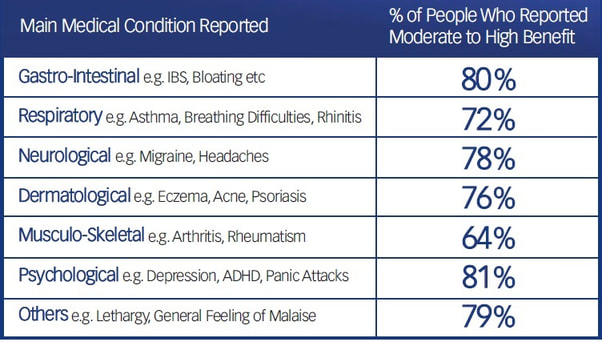 Available at Nourishing Insights clinic and shop at 44 St Andrew Street, Aberdeen or can be done at home. Food Intolerance testing can help a variety of conditions. If you have been suffering for some time and are getting by on endless rounds of pills which only offer symptomatic relief at best, food intolerances may be behind your continued health challenges. This test is suitable for children from 2 years old and involves a simple pin prick test. I offer a free 20 min consultation by phone to discuss your needs further and will advise as appropriate for each case. Test results are back within 10 working days. For small children our preferred approach is the gold standard which is an elimination diet. Ultimately the focus with our service is about getting to individual route cause and working on gut healing so as to restore immune tolerance and introduce most foods back where possible. Intolerance versus allergy. The test involves a simple pin prick test which goes off to a UK registered Medical Laboratory. This test is an IgG test which looks at your Immunoglobulin G response to particluar foods. There is much confusion and misinformation about food intolerances and what they actually are. An 'Allergy' is where you have an instant reaction to something as is often the case with common allergies to foods such as nuts and shellfish or even a bee sting. This can be a mild allergic response to a severe and sometimes even life threatening reaction where the person can go into anaphylactic shock. For these stronger reactions, it is necessary to carry a preventive medicine such as an epipen and serious care needs to be taken in managing this condition. The immunoglobulin involved in this case is IgE and testing for this is often done via the NHS. However we can now offer allergy testing also at our clinic if this is required. IgE testing at our clinic is also a pin prick blood test and the test offers both food and environmental allergens. An 'intolerance' on the other hand, involves an IgG response and the challenge with this is that it is often less obvious to the person experiencing it. Many people live for years without even considering that they may have one. That said, many of us know exactly when we've eaten something that our body doesn't like and a reaction can be fairly quick following a meal and can be quite severe. What is interesting is that when the results of a test come back, they often validate what the person was expecting and are thus very reassuring. One of the challenges is that it can take up to 72 hours to experience an IgG reaction which means you could for example, eat a potato on a saturday and have migraine on a monday and not join the dots between the two. So if you are one of those people who are not making the connection with food triggers, this could be why. The delayed reaction also makes it slightly trickier and time consuming when doing diary taking and elimination diets, although I also offer this approach and it works really well for many. It is of course possible to have both allergies and intolerances. For example you may have an 'allergy' to latex or nuts and a 'food intolerance' for dairy and yeast. There is also the option to test for both IgG and IgE at the same time if this is preferable. Nutritional protocol. Of course, there are other issues running alongside intolerances and the protocol for dealing with them involves more than just removal of identified triggers! This is where a Registered Nutritional Therapist comes in as I can ensure that you are well supported for total nutrient intake. I may also recommend further testing either via your GP or privately to identify other culprits. Ultimately, I will work with you to achieve balance and wellness across all body systems and tackling all of your health challenges in turn. We will also work together to heal the gut at cellular level and support digestive enzymes, stomach acidity and other fundamental aspects of optimal digestive health.This way, you will be able to re-introduce some foods as you heal over time and build back immune tolerance. Nutritional Therapy deals with the root cause of these problems. A food intolerance may indeed be causing your migraine. However, the ultimate cause is the reason for the food intolerance in the first place. This takes us to 'leaky gut' or intestinal permeability or perhaps you have low stomach acid. There are multiple factors that can set us up for developing a food intolerance from chronic stress to gut infections or drug medications. Food intolerance is therefore a symptom of an underlying weakness in your intestinal integrity. If this is not corrected, further problems will ensue longer term. An IgG test can only be carried out as a blood test but the lab we use offer a simple pin pick blood which can be done at home. Weight loss as a side effect not as a goal! One of the pleasant side effects of Nutritional therapy is that people usually lose weight. All recommendations involve following a 'clean' diet and the wonderful thing is that the appropriate support is given to be able to achieve this whatever your starting point. Something to consider regarding other weight loss approaches is that you can actually lose weight without eating healthy 'clean' foods. One example of this is just eating less. If we eat less 'junk' then of course we may lose weight but if we continue to eat foods that do not provide the right information to our cells, we are in big trouble! Add to this the fact that many of the foods we are told are 'healthy' are not. Weight loss should never be your primary goal to achieve wellness. It should follow naturally from following a health promoting lifestyle and appropriate foods for you. In addition weight gain can be an unpleasant side effect of unidentified food intolerance due to inflammation and fluid retention. If you have suddenly gained weight out of the blue, ask yourself if you have recently introduced a new routine example protein shakes at breakfast containing dairy of soya based protein powders as if you are reacting to either the dairy or the soya you can gain weight or really struggle to lose any. IBS, pain and autoimmune conditions, skin conditions. The commonest reasons for seeking food intolerance testing are the above and the results can be life changing for those who benefit. Double blind studies have shown a clear link between food intolerance and IBS with one study demonstrating a third of participants having at least one if not multiple food intolerances. In addition some sufferers of IBS benefit from following a low FODMAP's approach for a period of time, more in our IBS blog. Other very common conditions that are affected by food intolerance are Endometriosis and Eczema, asthma and hay fever, joint pain, migraine and mental health conditions. Interestingly, if you have an autoimmune condition, for example underactive thyroid or psoriasis, did you know that you are also at risk of developing other autoimmune conditions if you don't take steps to support your immune system now? I follow a Functional Medicine approach to my work as a Nutritional Therapist and autoimmune disease is an area of specialism for me. A Nutritional therapy consultation will help you get to the root of your particular health challenges. A food intolerance test can be done as a stand alone test without a full consultation as above, but a half hour consultation will always be completed to discuss your heath needs before the test is completed. Advice will also be given as to whether testing is appropriate or not. To make an appointment and to discuss your health challenges further, please phone 01224 969637 or contact us here I offer telephone and skype/zoom appointments for those at a distance. (Check with your insurance provider to see if Nutritional Therapy is covered) Prices can be found on our testing page. #Aberdeen #Nutritionist #Functional Medicine #Food intolerance I made an appointment with Beverley as I was struggling with underactive thyroid and had just been diagnosed with Polycystic ovary Syndrome. I didn't fully understand the link between autoimmune disease and food intolerance although I had suffered IBS for years, so it was all making sense! I was keen to deal with my PCOS through diet and supplements instead of drugs and am delighted in my success. Through eating the right foods for me, and balancing my blood sugar I was able to lose 2 stone and sort my hormones out. The result of all this (which I have to say wasn't as hard as I had anticipated!), is that I am now expecting my first baby! Highly recommend Beverley and Nutritional Therapy which really is life changing. Hannah, Aberdeenshire. Welcome to the 21 day oatcake challenge!! Many people ask me for simple, stress free hints and tips that involve the least effort but have the maximum impact.... so here we have it 'the 21 day oatcake challenge.'. All you have to do is to replace every slice of bread you would normally consume each day with an oatcakes for 21 days and the benefits to your health as well as your waistline will be well worth the tiny bit of effort involved. Of course, there are lots of oatcakes out there but I'd like you to choose the Nairn's oatcakes or Paterson's. They don't have to have the words Gluten Free but they do have to be wheat free to be beneficial to your health. (Some of the triangular, slightly larger versions contain wheat so please avoid) Oats are naturally Gluten free but in order to carry that on the label they have to be manufactured in a part of the factory away from any gluten for the benefit of people with a serious allergy, so we don't have to worry about that unless we know we are one of those people. You will notice that Nairn's also make sweet biscuits. If you are continuing to eat sweet biscuits during this challenge, then please replace with these ones. However, we would recommend you take the opportunity to reduce sugar and try plain oatcakes with a savoury or nut topping instead. This will keep you going longer, so you don't feel hungry and will maintain energy levels which is what we all need these days! Health benefits... Oats are packed with both soluble and insoluble fibre which means they help to promote healthy digestion and also help us to feel fuller for longer. They contain a particular type of fibre known as beta-glucan which is known to reduce the bad type of cholesterol in our blood reducing our risk of coronary heart disease. Studies have also shown a link between consumption of oats and reduced colorectal cancer due to the fibre content. Oatcakes also have a high mineral content especially manganese and phosphorous and are excellent for maintaining our energy levels. They also have a low glycaemic index which makes them helpful in managing blood glucose, especially if topped with a good quality protein/fat such as a nut butter. Why ditch the wheat? For many of us wheat based breads have become problematic. Complaints around bloating, IBS, eczema, depression and tiredness to name but a few have all been linked in many scientific studies to the consumption of wheat. When you consider that the wheat we eat now in our supermarket breads is a from a hybridized grains with 30% more gluten than our grandparents were exposed to, then you can see why so many people are removing wheat and or gluten from their diets, However, there are many other reasons for these types of symptoms and following this challenge does not replace an appointment with a nutritional therapist who can help you get to the root of your particular health challenges and may refer you for further testing via your GP. At this stage just replacing a poor quality bread with limited nutrient value and some potential disbenefits with something more nutrient dense and with a good source of both soluble and insoluble fibre can be a huge asset for maintaining health. There are of course many alternatives to wheat breads such as rye, spelt, amaranth and quinoa. Look out for these breads in theBiona range in the supermarket However, for now, let's keep it simple. Oatcakes are delicious and portable. You can carry them in your handbag/briefcase to work or out for lunch. They are fab with soups so you are not tempted to pick up that bread. You can add any topping you like as you would a sandwich or have along with a bag of salad (NOT one of those awful pasta salads but a packet of greens or egg or other protein such as salmon in with your salad) Ideally make your salad at home with lots of veg and some protein, either meats, fish or veggy source such as kidney beans. For snacking, they are ideal and can be enjoyed with some nut butters (check out almond, cashew and pumpkinseed butters or some pate or humus. You will find that you only need one and are ready for action with sustained energy! Similarly, they are great as a bedtime snack to keep you going through the night. Check out some nut butters at your health food shops. For example, Meridian Almond Butter. Now also available in Supermarkets. For breakfast you could replace that toast habit with oatcakes and an egg based breaky, or try oats as a porridge topped with nuts and seeds and a few berries. The great portability of oatcakes in the individual packets means that if you are in a rush, just make a boiled egg the night before (or as you take your shower!) and take your egg to work with some oatcakes to have when you get there. (Far superior to most cereals on the market!) We would love it if you got your family, friends, work colleagues to join you in this 21 day oatcake challenge. Many people find changing their diet a little daunting, but this is a fabulous way to make such a huge benefit to your health in a short time.. You will be surprised at how well you do. Bon appetit!! If you would like more ideas to support your health goals make sure you sign up to our Newsletter! |
Amazon Associates DisclosureNourishing Insights is a participant in the Amazon EU Associates Programme, an affiliate advertising programme designed to provide a means for sites to earn advertising fees by advertising and linking to Amazon.co.uk. Archives
December 2023
|
WHAT OUR CLIENTS ARE SAYING“I did Nutritional Therapy with Beverley and it was life changing. I highly recommend it!” Allison Blakely (Glasgow)
|
Contact Us |



